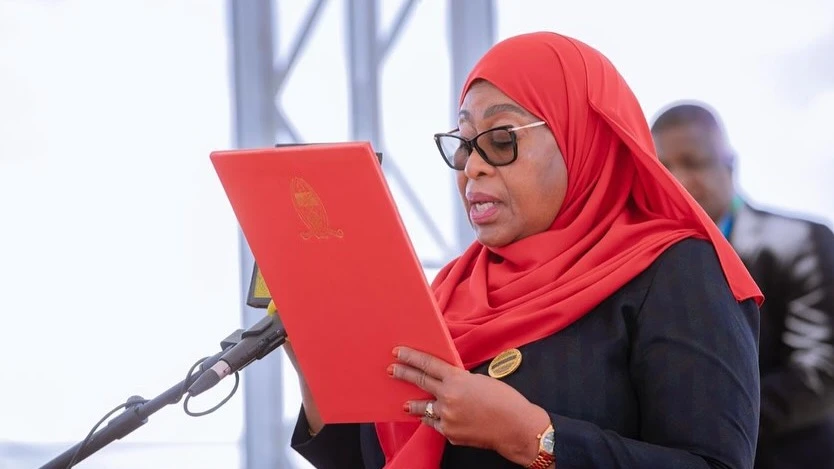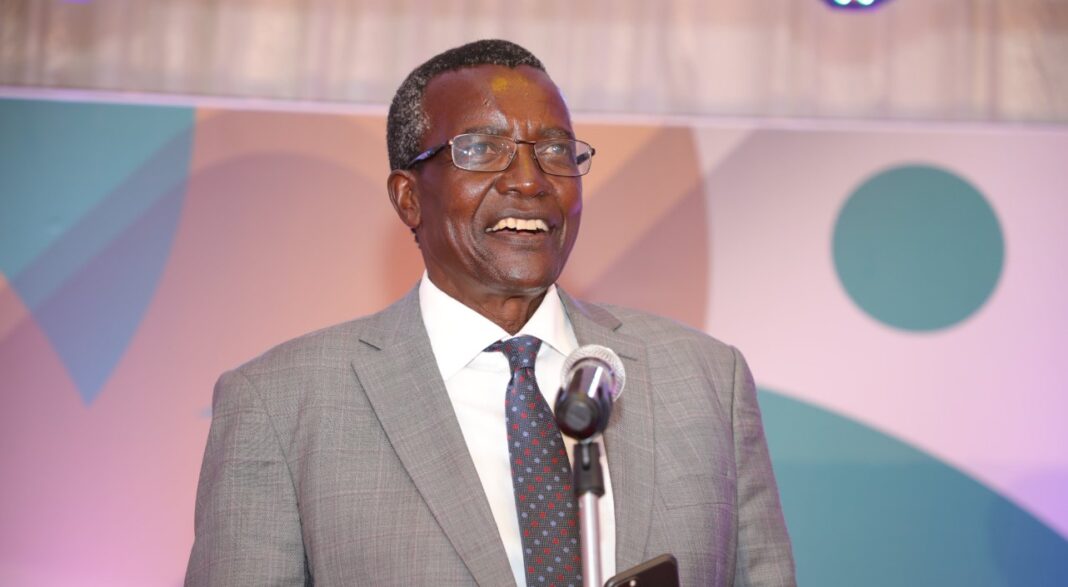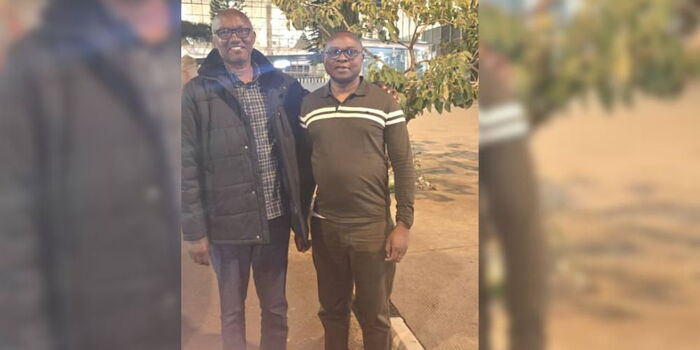Former Chief Justice and presidential hopeful David Maraga has reignited regional debate after claiming that Tanzanian President Samia Suluhu’s rise to power was built on a constitutional loophole.
Speaking on TV47, Maraga argued that the Tanzanian constitution’s failure to allow court challenges against presidential results effectively handed Suluhu the presidency without full democratic legitimacy.
His remarks have raised sharp questions about electoral justice, democracy, and legitimacy in one of East Africa’s most stable nations.

Tanzania’s Samia Suluhu Illegitimate Presidency Raises Constitutional Concerns
Maraga drew a clear line between Kenya’s constitution and Tanzania’s, asserting that the latter is deeply flawed in democratic structure. He noted that in Kenya, presidential results can be contested before the Supreme Court, allowing for judicial accountability. Tanzania, he said, denies its citizens this critical right, leaving the electoral commission unchecked.
“If the Tanzanian Constitution had allowed presidential court cases like Kenya, the elections would easily have been declared illegitimate,” Maraga stated. “Their constitution does not allow a petition challenging the presidential election, and that is a big mistake.”
According to the former Chief Justice, the absence of legal avenues to question presidential outcomes removes the people’s power to ensure transparency and fairness in leadership selection. He insisted that Suluhu’s leadership is, therefore, not a product of the people’s will.
Maraga Labels Suluhu’s Presidency Illegitimate
Maraga did not mince his words when he described Samia Suluhu as an “illegitimate Head of State.” He accused her of hiding behind the constitutional gap to claim authority without genuine electoral endorsement.
“If the people have not been given the chance to choose who they want, like Mama Suluhu has not obtained the legitimacy of the Tanzanian people,” he said, adding that this legal omission is a betrayal of democracy.
His remarks come at a time when Suluhu’s government faces growing criticism for allegedly mishandling dissent. Protests have intensified across Tanzania following the disputed election, with reports of arbitrary arrests and violence against demonstrators. Maraga suggested that the government’s actions reflect an outdated form of governance disconnected from modern democratic values.
Maraga Condemns Tanzania’s Response to Protests
The former Chief Justice expressed deep concern over reports of killings and mass arrests during the post-election protests. He accused Suluhu’s administration of resorting to authoritarian tactics to silence opposition voices instead of addressing citizens’ grievances.
“Samia Suluhu is living in denial,” Maraga said. “If it were foreigners protesting and Tanzanians denying it, it would be something different. She is just slandering us.”
He dismissed the Tanzanian President’s claims that the protests were fueled by foreign interference, terming them a desperate attempt to deflect blame. Maraga emphasized that genuine democracy thrives when leaders confront internal issues honestly rather than scapegoating external forces.
Regional Lessons on Democratic Accountability
Maraga linked Tanzania’s unrest to similar struggles witnessed in Kenya, Madagascar, and Nepal. He said those nations experienced democratic crises when their institutions failed to uphold electoral transparency. “Even in Kenya, when we had protests, there were foreigners here, but we did not say they brought violence,” he noted. “The things we see in Tanzania are not new.”
His remarks serve as a cautionary tale to East African leaders who continue to suppress accountability in the name of stability. Maraga’s critique highlights the growing demand for constitutional reforms across the region to ensure that presidential elections are open to legal scrutiny.
Suluhu, who was sworn in on November 3 after an election marred by allegations of rigging and deadly violence, now faces renewed questions about her legitimacy both domestically and internationally. Her government’s response to Maraga’s comments is yet to be seen, but observers believe the remarks could reignite regional conversations about constitutional democracy in Africa.
Maraga’s fiery criticism may reignite a broader push for constitutional accountability, pressing Tanzania to confront its democratic weaknesses and restore people’s faith in leadership.


